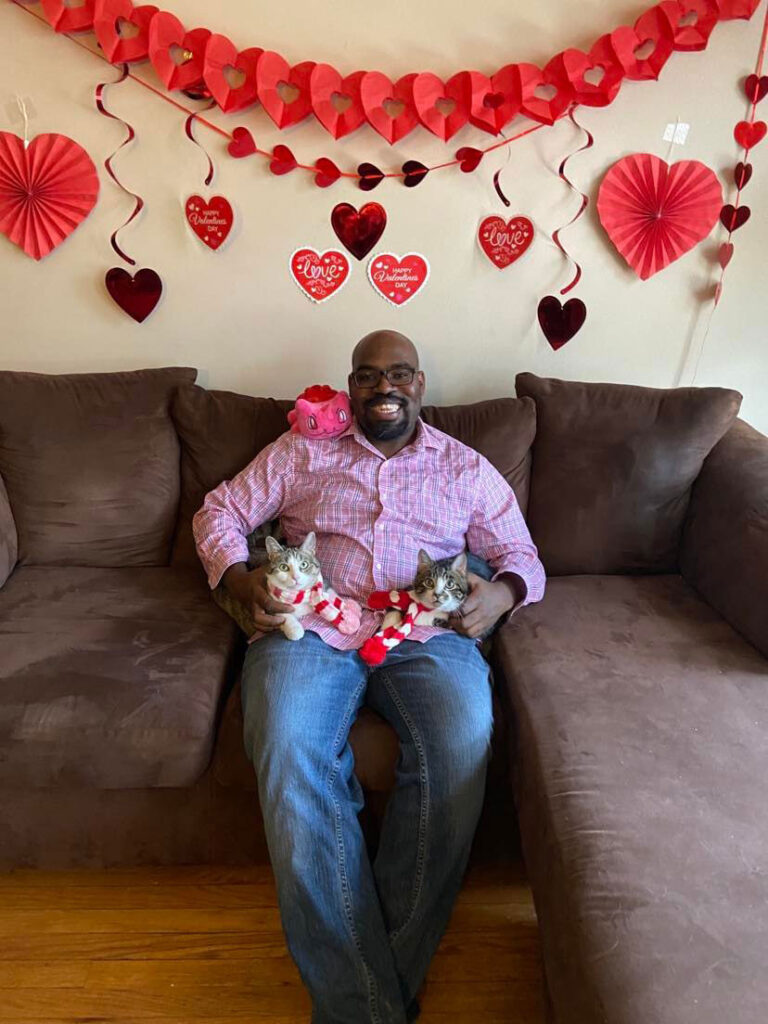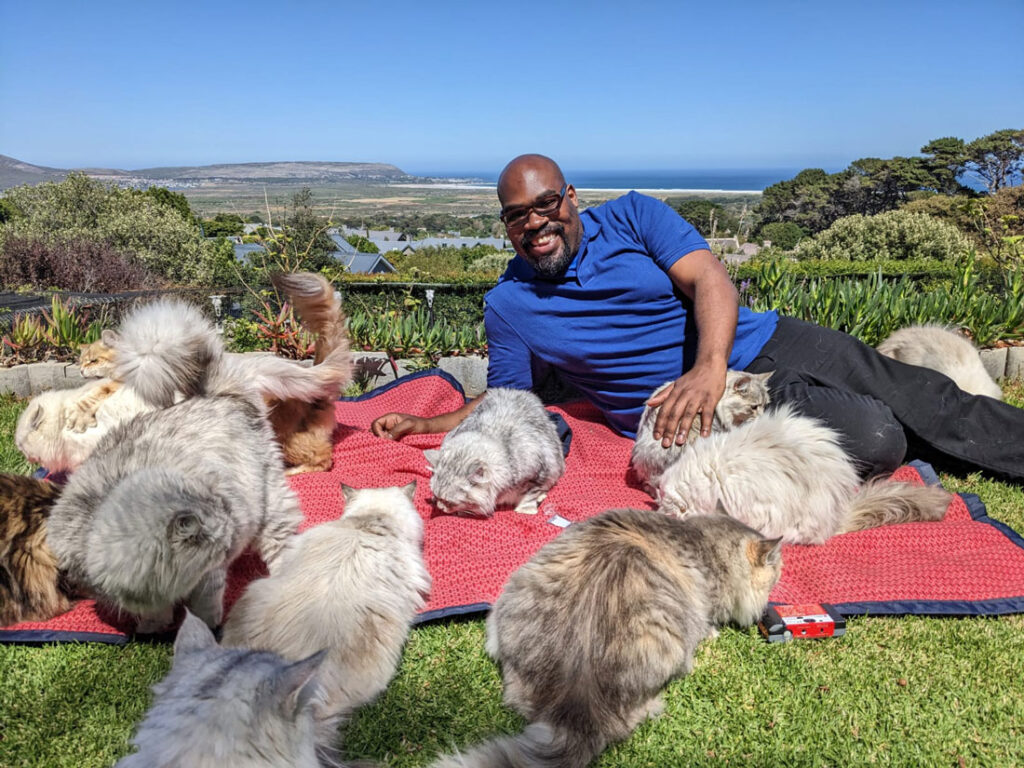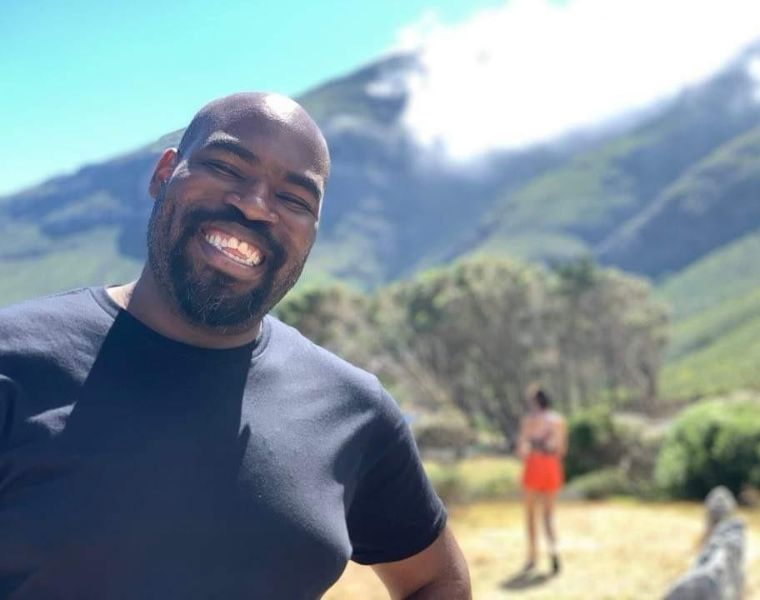Editor’s note: Held annually, Graduate Student Appreciation Week recognizes the contributions graduate students make to Case Western Reserve University through their scholarship, research, service and other activities. This year, the Office of Graduate Student Life has coordinated a variety of events, held April 3–8, including giveaways, trivia and more. Get more details about the week. In honor of the week, we’re highlighting Razaq Durodoye, president of the Graduate Student Council.
From a young age, Razaq Durodoye dreamed of becoming a doctor. And today, he’s well on his way—the Texas native is an MD/PhD student in the Medical Scientist Training Program at Case Western Reserve University School of Medicine, and also serves as the university’s Graduate Student Council president.
Durodoye’s road to leadership roles in research and student government has been fraught with roadblocks and detours, making his accomplishments all the more impressive. During his sophomore year of high school, he became the target of racially motivated bullying—a trend that caused so much distress that he was forced to make a difficult decision.
“With the support of my parents, I left high school and got my GED,” explained Durodoye. “The bullying really took a toll on my mental health.”
Despite the major life change, Durodoye was committed to continuing his education. He spent a few years earning his Associate of Science degree before enrolling in a four-year university to study biochemistry, where his love of research flourished. Through career shadowing, he discovered he not only wanted to become a doctor, but a physician-scientist.
When it came time for the next step, however, Durodoye found himself at a standstill—he did not get into medical school on his first try. Rather than shift gears, he figured out what he needed to do to become a viable applicant.
“I got a job as a research assistant for a year, contributed to a scientific article, reapplied and found my way to Case Western Reserve University,” said Durodoye. “A lot of people said I didn’t have the personality to go to med school, or the grades to get in, but if you care about something you’ll find a way. It might not be the shortest way, and everything might not go exactly how you want, but with enough effort and some luck, things work out.”
Research that gets noticed
Since arriving at Case Western Reserve, Durodoye has not only proven he belongs—he’s excelled. His research has garnered attention and praise from his instructors as well as his peers.
“His enthusiasm as a researcher and leader among his peers is exemplary and will [help] move us to health equity,” said School of Medicine Professor Scott Williams.

And so far, 2023 has been a busy year.
In February, Durodoye presented at Brown University’s American Association of Neurological Surgeons chapter conference on how hormonal birth control and hormone replacement therapy in women affect the risk of developing multiple sclerosis.
“I’m very interested in studying and understanding and investigating underserved and understudied populations, especially in the context of hormones and science,” said Durodoye. “I feel like the study of women is underappreciated.”
On April 19, Durodoye will compete against students from other universities in Washington, D.C., presenting his “Three Minute Thesis” topic, titled “Race and Genetics in Alzheimer’s Disease.” It’s research that Professor Williams says is critical.
“He is delving into the role genetic factors play in Alzheimer’s disease risk disparity. His work will then assess the relative contributions of race as compared to underlying genetics,” said Williams. “This work is critical to our understanding of what generates disparities and how we can eliminate them.”
In May, Durodoye is taking part in an international augmented intelligence research competition at Northwestern University with the Type2CWRU team and fellow researchers Christopher Maatouk, Jason Rich, David Selvaraj and Jacqueline Shaia. The project aims to use unsupervised machine learning methodologies to identify specific type 2 diabetes clusters associated with long-term outcomes.
Leading by example
Before taking on university-wide responsibilities with the Graduate Student Council, Durodoye held many student government leadership positions at the School of Medicine. He said the murder of George Floyd in 2020 served as a motivator for taking on bigger roles.
“That got me into taking a more active role as a student advocate and from there I went to join the Graduate Student Council as director of diversity and inclusion,” said Durodoye. “I saw what changes I could inspire and help facilitate in the School of Medicine and I wanted to bring that to the university level.”
Durodoye’s term as president of the Graduate Student Council ends this month, and he says he is most proud of the connections he was able to make with the university community.
The importance of self-care

While Durodoye thrives on being involved and representing the graduate school community, he warns fellow students not to spread themselves too thin.
“I think it’s very easy to say ‘yes’ a lot,” said Durodoye, who admits saying ‘no’ is hard for him. “But what’s even more fundamental is understanding what you care about, what drives you to be a better person and to be fulfilled, and figuring out what would allow you to intentionally use your time to those ends.”
Although Durodoye has a busy schedule, the naturally social student makes sure to spend time with others, enjoy the outdoors and play with his cats (pictured) or visit cat cafes (also pictured). You may even hear him on Thursday nights singing karaoke at the Jolly Scholar.

